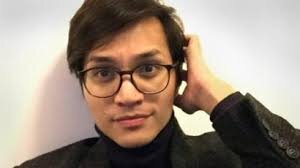Britain’s most rampant rapist ignites homosexuality debate in Indonesia
Reynhard Sinaga. Photo from Facebook.
(NEWS ANALYSIS) On Jan. 6, a court in Manchester, England, sentenced Reynhard Sinaga to life in prison with a minimum term of 30 years. He was found guilty of 159 offenses, including 136 rapes against men, and there was evidence that his number of victims was perhaps as many as 190. He was subsequently described in the tabloids as Britain’s “Most Prolific Rapist.”
This expectedly and justifiably created a stir in the United Kingdom. But what was unusual was that the case created an even larger stir in a country half a world away—in Indonesia.
Sinaga was an Indonesian graduate student in Manchester, the son of a banker, and his arrest and conviction became a cause célèbre in that country’s ongoing disputes on homosexuality. His father, Saibun Sinaga, told the BBC: "We accept the verdict. His punishment fits his crimes."
One of the first responses in Indonesia to the news from Manchester was to assert that such prolific rapes were a symptom of homosexuality itself and so provide an additional argument for banning it. Muhammad Idris Abdul Somad, the Mayor of Depok, a suburb of Jakarta in which Sinaga’s family lives, ordered police raids on rented homes and apartments in the city to clamp down on pro-LGBT activities.
To counter this, on Jan. 7, 16 civil society organizations issued a statement asking for the public to refrain from linking Sinaga’s crimes to his sexual orientation. The National Commission on Human Rights also issued a statement asking Idris to revoke his calls, calling them unconstitutional and a violation of the International Convention on Civil and Political Rights.
Homosexuality is not illegal in Indonesia, except in the Province of Aceh, which after a long war for independence is semi-autonomous and governed by Sharia law. In 2017, two gay men were caned 82 times each there for their sexual activities.
However, there are major attempts to make it illegal in the rest of the country and, while not a crime, under Indonesia’s anti-pornography law, homosexuality is defined as a sexual deviance. In 2013, a Pew Research Center poll found that 93 percent its respondents in Indonesia disagreed that “society should accept homosexuality.”
Zulkifli Hasan, then Chairman of the People’s Consultative Assembly, Indonesia’s national legislative body, stated that homosexuality “does not fit with our culture” and “should be banned because it does not fit with the culture of Indonesia.” In 2019, the Attorney General's Office and the Trade Ministry instituted a ban on LGBT applicants in civil service recruitment, although the Trade Ministry rescinded its ruling after it was heavily criticized. In December 2019, there was an "anti-sexual deviance propaganda" bill put before the legislature.
In 2016, the Indonesian Ulama Council (MUI) called for the criminalization of LGBT activities. The Council is an Islamic semi-governmental advisory body whose opinions have wide influence, although they may be ignored by the government. Indonesia’s Minister of Religious Affairs, Lukman Hakim Saifuddin, responded that he did not agree with the MUI. Maruf Amin, the then Chairman of the MUI, referred to a 2014 MUI fatwa that the promotion of LGBT activities was against Islam. He added: "We want a stern prohibition of LGBT activities and other deviant sexual activities and legislation that categorizes them as crime." Maruf is now Indonesia’s Vice President.
In general, there has not been a backlash following Sinaga’s sentencing, but there are fears that the case could provide ammunition to radical Islamist groups. Mayor Idris is a member of the Prosperous Justice Party, an Islamist group. The Islamic Defenders Front (FPI), a vigilante group that led huge rallies calling for then Jakarta Governor Ahok to be imprisoned for blasphemy, has worked with police in trying to suppress curbing gay activities.
Meanwhile police in some Provinces have formed task forces to monitor LGBT activities, though there is no national policy. In the absence of any laws banning homosexual activity, police have been using laws against loitering or creating a public nuisance to facilitate arrests.
Paul Marshall is the Wilson Distinguished Professor of Religious Freedom at Baylor University, a senior fellow at the Hudson Institute’s Center for Religious Freedom, Washington, D.C, and a contributor to Religion Unplugged.

